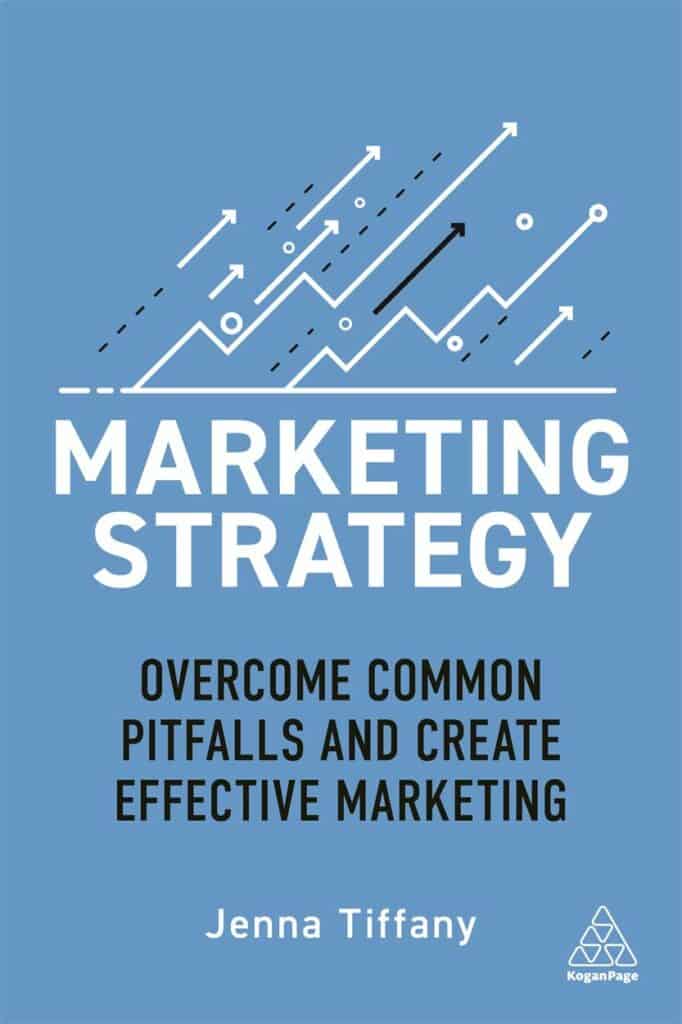Affiliate marketing is a popular marketing tactic which can bring in brand new audiences if done right.
In my book, ‘Marketing Strategy: Overcome common pitfalls and create effective marketing’, I go into detail about how to turn affiliate marketing to your advantage. But my blog readers deserve to know a bit about affiliate marketing too, so here’s a brief guide!
What is affiliate marketing?
Affiliate marketing involves bringing in an external partner to promote your brand, and rewarding them on a commission basis. Commission is usually tied to a specific metric.
For example, if you partner with an affiliate blogger, commission may be paid according to the number of clicks that come through from their site.
For best results, the affiliate you work with should be in some way related to your own brand. To stick with the blogger example for a moment, if your brand sells cookware, you’d be far better off partnering with a cooking blogger than with a sports blogger. Your affiliate links will be more natural in a cookery context, the audience will already be interested in cooking, and the blogger will be better able to describe your products in knowledgeable, trustworthy, appealing terms.
Why should marketers work with an affiliate?
If you pick the right affiliate, the right products, and the right links, affiliate marketing can be incredibly effective.
The right affiliate will already have an engaged audience. As in my cookware example above, if that audience has a pre-existing interest in your industry or product, that audience can easily be brought into your own community.
What’s more, the affiliate’s audience are likely to trust them. Even when they know that the affiliate is getting paid commission for promoting your product, audiences trust them to pick the right products to promote. So, you don’t have to work as hard to convince them to convert.
There’s also the fact that affiliate marketing spreads the load. It helps get your message out to the furthest corners of the internet without your marketing team having to do all of the work. Affiliates can be very inventive with the ways in which they promote your products, and are often extremely good at getting their message out there.
All in all, the right affiliate can bring in new, ready-engaged customers, boost your conversion rate, and spread your message far and wide. All while taking some of the burden from the shoulders of your marketing team.
When should you partner with an affiliate marketer?
Here are some of the best times to bring in an affiliate:
- When you have limited marketing resources. If your team is small and stretched for time, an affiliate can help spread the word without adding much extra burden to your marketing resources.
- When you need to reach wider (or new) audiences. The right affiliate can bring in new audiences with ease. By partnering with an affiliate, you’re tapping into an established, engaged audience who may well be willing to join your brand community.
- When you need a fresh take on things. If your marketing feels a bit stale, or you’re struggling to come up with new ideas, an affiliate can breathe new life into your messaging.
- When the partnership is perfect. Sometimes, an opportunity is too good to miss. If a potential affiliate would be absolutely ideal for your product, don’t let the moment go to waste! Reach out!
These aren’t the only times to bring in an affiliate marketer, of course. An affiliate can bring in great results at any time!
How to do affiliate marketing right
There is no one size fits all guide to affiliate marketing. Every affiliate has their own style and their own preferred way of working. The best fit for you depends on your own brand goals, tone, and values.
However, there are some broad affiliate marketing guidelines that all brands can follow:
- Decide on how you want to pay commission. Some affiliates will only accept certain types of commission, but it’s still worth drawing up your own ‘ideal world’ commission guidelines. Think about the results you want, the metric (or metrics) you can tie them to, and the amount you are willing to pay.
For example, are you willing to pay a smaller amount per click, or would you rather hold your funds and give a larger payout when someone who clicks through from your affiliate’s content actually converts? And are you willing to pay more for larger conversions, or will it be a flat fee for all conversions?
Also think about how much you are willing to negotiate. Your affiliate may have their own ideas about what they should be paid for (and how much). So, work out what’s non negotiable and what you can concede before entering discussions. - Find the right affiliate. Your affiliate needs to be appropriate for both your brand and the audience you’re trying to reach. Look for an affiliate who:
- Embodies your brand values
- Complements your brand persona
- Is relevant to the market sector you’re trying to reach
- Has an established following
- Creates great content that chimes with your own brand voice
- Is professional and easy to work with
- Issue brand guidelines. While one of the benefits of having an affiliate is that they create a lot of content for you, it’s still important that they’re not going off-message. Remember, while promoting your brand they are associated with your brand, and content containing your affiliate links will affect your brand image. With the right affiliate, it should affect it positively, but it works the other way, too!
By giving your affiliate things like TOV guidelines, topics to steer clear of, a brand value checksheet and so on, you help your affiliate to strike the right tone without sacrificing their own unique voice. - Check their content. A good affiliate will let you give their content a quick once-over before publishing it.
Remember, an affiliate isn’t getting paid directly to create content for you. Plus, it’s their own unique style and tone that will bring in the audiences. So don’t whip out the red pen and edit their stuff to bits. But do say if you’re concerned that something in their content clashes with your brand values, or could negatively affect your brand’s reputation.
Want to know more about affiliate marketing, along with plenty of other marketing tools, tactics, and channels? Buy my book, ‘Marketing Strategy’, today! Order your copy here.
Order through the Let’sTalk Strategy website for a 20% discount!


